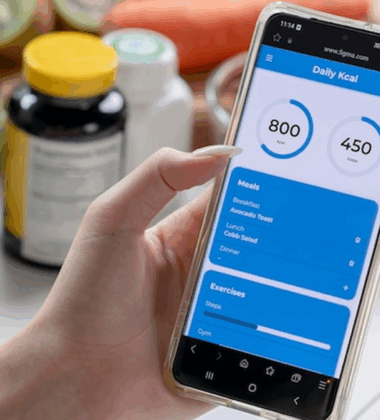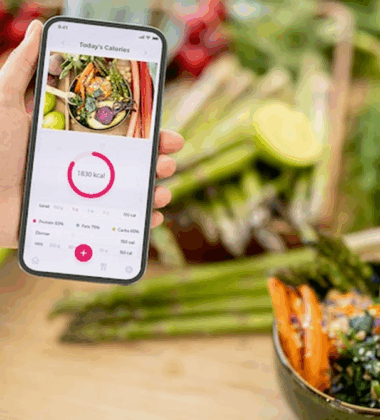In today’s fast-evolving health and wellness landscape, functional beverages have surged from a niche category into a dominant force, capturing the hearts (and stomachs) of consumers around the world. Modern shoppers aren’t just looking for hydration — they want their drinks to work harder for them, delivering benefits like energy boosts, enhanced focus, immune support, gut health, and stress reduction.
For product developers and health brands, understanding this booming trend is critical for staying competitive and unlocking new growth opportunities. In this article, we’ll dive deep into why functional beverages are trending, what consumers really crave, and how you can innovate to meet — and exceed — their expectations.
What Are Functional Beverages?
Functional beverages are drinks that offer health benefits beyond basic nutrition. They’re formulated with special ingredients like probiotics, vitamins, adaptogens, antioxidants, electrolytes, and botanicals designed to support specific functions — from brain health to athletic recovery.
Examples include:
- Kombucha (gut health)
- Adaptogen-infused teas (stress relief)
- Protein waters (muscle recovery)
- Nootropic coffee blends (cognitive enhancement)
- Electrolyte-infused sports drinks (hydration and endurance)
With health and wellness becoming an everyday priority, functional beverages have moved from specialty stores into mainstream supermarkets, convenience stores, and online marketplaces.
7 Key Drivers Behind the Rise of Functional Beverages
1. Health-Conscious Lifestyles Are the New Norm
Post-pandemic, consumers are more proactive about their health than ever before. The emphasis on immunity, mental well-being, and sustainable energy has led people to seek out beverages that support overall wellness — without the high sugar content found in traditional sodas and juices.
Keyword Insight: Terms like “immune-boosting drinks,” “low-sugar functional beverages,” and “energy-enhancing drinks” are surging in search trends.
2. Natural and Clean Label Demands
Today’s shoppers scrutinize labels. They want transparency, clean ingredients, and natural formulations. Functional beverages that tout “non-GMO,” “organic,” “no artificial sweeteners,” and “plant-based” claims resonate strongly with this audience.
Pro Tip: If you’re developing a functional drink, invest in sourcing clean, ethically produced ingredients — and highlight that clearly in your marketing.
3. Personalized Nutrition Trends
From DNA-based diet plans to fitness-tracking apps, personalization is revolutionizing the health industry. Consumers expect their beverages to cater to their unique needs — whether it’s more collagen for better skin, more magnesium for stress relief, or more B-vitamins for energy.
Smart Move: Offer customizable functional beverage lines or create drinks tailored to specific demographics like athletes, busy professionals, or aging populations.
4. The Rise of Adaptogens and Botanicals
Adaptogens like ashwagandha, rhodiola, and holy basil are gaining massive popularity for their stress-balancing properties. Likewise, botanicals such as chamomile, lavender, and elderberry are being infused into beverages for added functional flair.
Insight: The global adaptogen market is expected to exceed $20 billion by 2029. Incorporating these ingredients can position your brand at the forefront of a major trend.
5. Convenience and On-the-Go Health Solutions
Busy consumers need wellness solutions that fit seamlessly into their fast-paced lives. Ready-to-drink (RTD) functional beverages deliver instant benefits without preparation, making them the perfect grab-and-go option.
Optimization Tip: Highlight “ready-to-drink convenience” in product descriptions and SEO content to tap into this strong purchase driver.
6. Gut Health and the Microbiome Boom
With more people understanding the critical role gut health plays in overall wellness, probiotics and prebiotics are now major functional beverage trends. Drinks like kombucha, kefir, and probiotic waters are skyrocketing in popularity.
Stat to Know: The global probiotics market is expected to reach $77 billion by 2025. Functional beverages offering gut health benefits are poised for explosive growth.
7. Sustainability Matters
Eco-conscious consumers prefer brands that reflect their values. Sustainable packaging, ethical ingredient sourcing, and low-carbon production processes are becoming non-negotiable factors influencing purchasing decisions.
Branding Tip: Communicate your commitment to sustainability across all touchpoints — website, product labels, and marketing campaigns.
What Health-Conscious Consumers Crave in Functional Beverages
✅ Efficacy: Proven benefits backed by credible research
✅ Great Taste: No one wants to sacrifice flavor for function
✅ Low Sugar/Natural Sweeteners: Honey, stevia, monk fruit are preferred
✅ Attractive, Informative Packaging: Communicates benefits
✅ Authenticity: Honest, transparent brands win long-term loyalty
How Brands Can Win the Functional Beverage Race
Product developers and health brands must embrace innovation while staying laser-focused on consumer demands. Here are strategies that separate leaders from laggards:
- Invest in R&D to create novel formulations
- Collaborate with nutritionists and wellness influencers
- Leverage AI and data analytics to predict future trends
- Create educational content around your product’s health benefits
- Offer sampling programs to encourage trial and boost word-of-mouth marketing
Final Thoughts: Functional Beverages Are Just Getting Started
As the functional beverage market continues to expand, opportunities abound for brands that deliver true value, authenticity, and innovation. By aligning your products with what today’s health-conscious consumers crave — efficacy, taste, transparency, and sustainability — you can position yourself at the forefront of this lucrative trend. join the food and beverage expo now!
Ready to tap into the future of functional beverages?
Focus on what matters most: real benefits, clean ingredients, and a customer-first mindset. Success will flow naturally.





